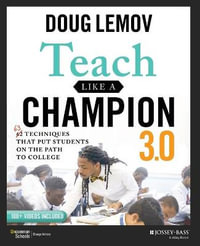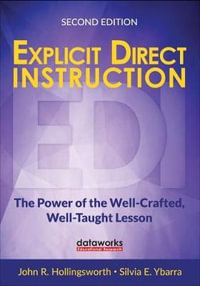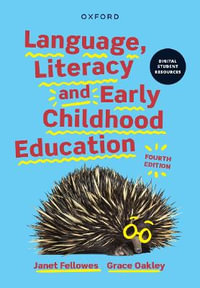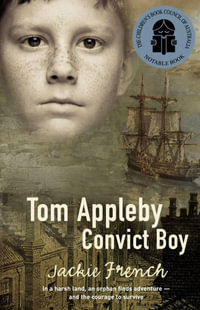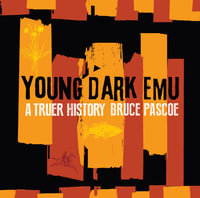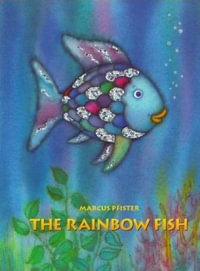| Introduction | p. iii |
| ICLS 2000 Conference Program Committee | p. v |
| ICLS 2000 Reviewers | p. vi |
| Cognition:Papers and Posters | p. 1 |
| Learning Energy, Momentum, and Conservation Concepts with Computer Support in an Undergraduate Physics Laboratory | p. 2 |
| Epistemological Resources | p. 4 |
| Problem Solving About Complex Systems: Differences Between Experts and Novices | p. 14 |
| Levels of Web-Based Discussion: Theory of Perspective- Taking as a Tool for Analysing Interaction | p. 22 |
| Role of Students' Representations in the Mathematics Classroom | p. 27 |
| How to Implement an Innovative Problem-Based Curriculum in Medical Education: Challenges and Solutions | p. 29 |
| Investigating the Development of Understanding and Scientific Reasoning via Cycles of Guided Inquiry Instruction | p. 31 |
| Understanding Adoption of Software Tools: Comparative Case Studies of Teacher Beliefs About and Use of Inquiry-Support Software | p. 33 |
| Integrating Inquiry-Based Multimedia Learning Outcomes into Educational Accountability Systems | p. 39 |
| Relation-Making to Sense-Making: Supporting College Students' Constructive Understanding with an Enriched Collaborative Note-Sharing System | p. 41 |
| Strategic Use of Knowledge Media for Conceptual Understanding through Self-Explaining | p. 48 |
| Motivational Processes in CSILE-Based Learning | p. 50 |
| The Impact of The Math Forum's Problem (s) of the Week on Students' Mathematical Thinking | p. 52 |
| The Role of Educative Curriculum Materials in Reforming Science Education | p. 54 |
| The Design and Evaluation of Classroom Supports for Seamless Integration of a Dynamic Modeling Tool | p. 62 |
| A Model of Collaborative Knowledge-Building | p. 70 |
| Levels of Competence in Procedural Skills | p. 78 |
| On the Relationship Between Knowing and Doing in Procedural Learning | p. 80 |
| Real-World Problem Solving Mathematics Tutor | p. 87 |
| An Analysis of Non-integrated Engineering Education | p. 89 |
| Scientific Understandings Revealed by Students' Computer Models of a Stream: A Trickle or a Flood? | p. 98 |
| Applying Cognitive Research to the Design of Visualization Tools: Features of the Blue Skies - College Edition Software | p. 106 |
| Using Technology to Support the Development of Conceptual Understanding of Chemical Representations | p. 121 |
| Science Learning in Chinese Secondary Schools | p. 129 |
| Conceptual Change Through Building Three-Dimensional Virtual Models | p. 134 |
| Designing Mildred: Scaffolding Students' Reflection and Argumentation Using a Cognitive Software Guide | p. 142 |
| Students' Searching and Evaluating with the Artemis Interface to a Digital Library | p. 150 |
| Uneven Achievement in a Constructionist Learning Environment | p. 157 |
| Modeling and Case-Based Reasoning in Support of Reflective Inquiry in Earth Science | p. 164 |
| A Hands-on Modeling Approach to Evolution: Learning about the Evolution of Cooperation and Altruism Through Multi-Agent Modeling - The EACH Project | p. 166 |
| Computer-Supported Collaborative Problem Solving in the Home Environment | p. 174 |
| Studio Zone: Computer Support for Reflective Design | p. 176 |
| Computerized Molecular Modeling: Enhancing Meaningful Chemistry Learning | p. 185 |
| Evaluating Classroom Practices Using Qualitative Research Methods: Defining and Refining the Process | p. 193 |
| Support Net Online: How People Use Web-Based Environments to Learn | p. 199 |
| A Survival Guide: The Student Success Handbook for Learners in Project Based Science Environments | p. 201 |
| Group Reflection Tools for Virtual Expert Community - REFLEX project | p. 203 |
| On the Role of Animated Analogies in Algorithm Visualizations | p. 205 |
| Virtual Gorilla Modeling Project: Middle School Students Constructing Virtual Models for Learning | p. 212 |
| The Virtual Exploratorium: Foundational Research and Theory on the Integration of 5-D Modeling and Visualization in Undergraduate Geoscience Education | p. 214 |
| The Internet-based Shared Environment for Expeditions | p. 230 |
| PBL-protocols: Guiding and Controlling Problem Based Learning Processes in Virtual Learning Environments | p. 232 |
| Observation-Based Inquiry in a Virtual Ambient Environment | p. 238 |
| Designing Auto Tutor to be an Effective Conversational Partner | p. 246 |
| Assessment Strategies for Learner-Centered Software | p. 254 |
| Exploring a Structured Definition for Learner-Centered Design | p. 256 |
| Zones of Exploration: A Framework for Describing and Designing Student-directed Activities | p. 264 |
| Learning in Task-Structured Curricula | p. 266 |
| Promoting Teachers' Flexible Use of the Learning Sciences through Case-Based Problem Solving on the WWW: A Theoretical Design Approach | p. 273 |
| A Community of Educators Using Online Self-Organization to Develop a Process for Creating Technology-Integrated Instructional Materials | p. 280 |
| A Virtual Environment Designed To Help Students Understand Science | p. 290 |
| Goin'Up?: Using a Design Task to Teach About Force and Motion | p. 297 |
| Agent as Detector: An Ecological Psychology Perspective on Learning by Perceiving-Acting Systems | p. 299 |
| Reflections on Learning Sciences Using the Knowledge Mining Process | p. 310 |
| Narrative Analysis of Two On-line Political Simulations | p. 320 |
| Implicit Cultural Templates in Software Design: Renegotiating the Norm with Girl Software | p. 322 |
| Online Teacher Reflection as a Scaffold to Support Reform-Based Curriculum Implementation | p. 324 |
| Mentoring in the Open: A Strategy for Supporting Human Development in the Knowledge Society | p. 326 |
| Patterns of Interaction in Computer-supported Learning: A Social Network Analysis | p. 334 |
| Identity Development through Participation in an Informal Setting | p. 340 |
| Investigating the Mutual Adaptation Process in Teachers' Design of Technology-Infused Curricula | p. 342 |
| Silent Negotiations: A Case Study of Roles and Functions Utilized by Students, Teachers, and Mentors in Project-based, Telementoring Relationships | p. 350 |
| The Diffusion and Appropriation of Ideas: An Investigation of Events Occurring Between Groups of Learners in Science Classrooms | p. 358 |
| Special Sessions | p. 361 |
| Scaling Educational Online Communities: The Role of Volunteerism in Doing Large-Scale Educational Projects Online | p. 362 |
| Individual Change and Cultural Process: Their Role in Virtual Community Building | p. 372 |
| Author & Key Word Indices | p. 385 |
| Index | p. 386 |
| Index | p. 388 |
| Table of Contents provided by Publisher. All Rights Reserved. |




